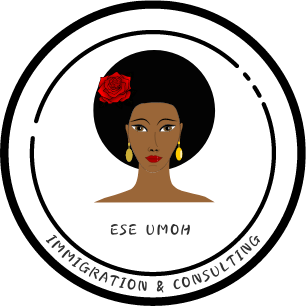So you’re dreaming of a degree abroad, that’s amazing. But while you’re waiting, why not invest in yourself now? You don’t need to wait until you’re overseas to start building relevant skills. These 10 free online courses in green-sector and sustainable trade skills are open to anyone. These will give you a strong foundation and confidence before you take off.
1. Climate Change & Renewable Energy
-
Platform: OpenLearn (Open University)
-
Description: Covers the science of climate change, the greenhouse effect, and how renewable energy (like solar and wind) can help us make the transition away from fossil fuels. It’s a simple, foundational course that helps you understand why green jobs matter.
2. Elements of Renewable Energy
-
Platform: FutureLearn
-
Description: Explores renewable energy through the lens of the four “Greek elements” – Earth (solar), Air (wind), Fire (direct sunlight), and Water (hydropower). It gives a beginner-friendly breakdown of major renewable energy sources.
3. Zero-Energy Design
-
Platform: edX (Delft University of Technology)
-
Description: Teaches how to design or retrofit existing buildings to use almost zero energy. If you’re interested in green construction or architecture, this helps you think like a sustainable designer.
4. Sustainable Building Design
-
Platform: edX (MITx)
-
Description: Focus on how to make buildings more energy-efficient, comfortable, and resource-conscious — covering thermal behavior, light, and materials. It helps you understand building design from a sustainability perspective without needing advanced engineering.
5. Sustainable Construction Management
-
Platform: edX (University of Maryland)
-
Description: Learn how construction projects can be managed sustainably — from planning and materials to minimizing waste and energy. It is useful for people who want to work in construction but care about green building practices.
6. Net‑Zero Building Fundamentals
-
Platform: Coursera
-
Description: 11 modules that cover building envelope, passive design, HVAC, natural ventilation, and more – all in the context of designing carbon‑neutral buildings. Great for understanding how future buildings are being designed to use much less energy.
7. Intro to Macroeconomics & Climate: Transitioning to Net-Zero
-
Platform: edX (in partnership with IMF)
-
Description: Looks at investment needs, policy, and economics behind transitioning to a net-zero world. It helps you understand the big-picture financial side of the green energy transition.
8. Renewable Energy Microgrid: Energy Transition
-
Platform: FutureLearn
-
Description: Explains how microgrids work, their components, and how they can power communities sustainably – especially in off-grid or low‑infrastructure areas.
-
Why it’s useful: Microgrids are a big deal for sustainable development; learning about them opens up practical green-project opportunities.
9. Introduction to Climate Change (From Learning to Action)
-
Platform: UN CC:Learn / UNITAR
-
Description: Self‑paced, free course that explains climate science, adaptation, mitigation, and how to plan climate action. It’s a trusted UN‑backed course and a strong foundation for climate literacy.
10. Children & Climate Change
-
Platform: UN CC:Learn / UNITAR
-
Description: Focuses on how climate change affects children, how they can be resilient, and how they can act. If you’re interested in advocacy, education, or community engagement, this teaches you how to talk about climate change with younger audiences or in social projects.
How to use these courses to build your study-abroad profile
-
Add to your CV / LinkedIn: Even if they’re short courses, they show commitment to sustainability and future-focused skills.
-
Use them to decide your major: Taking a few of these could help you figure out which green career path you want to study abroad.
-
Prepare for internships: Knowledge from these courses can help you apply for green internships or roles while studying.
-
Network with like-minded people: Most of these platforms have discussion forums, a great place to meet others passionate about green jobs.
Quick Note
These courses may be “free” and “short,” but their impact can be long-term. They empower you with knowledge, confidence, and direction, so when you do go abroad, you’re not just another student. You’re someone who’s already building, already learning, and ready to make a difference.
Do you need assistance with exploring universities and courses for a full degree? Book a consultation session to speak with a consultant.


